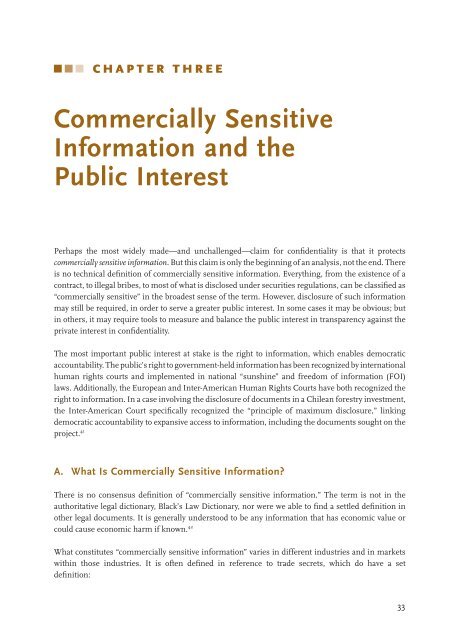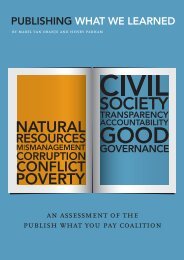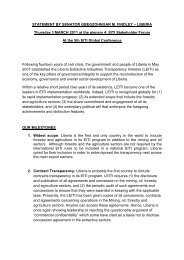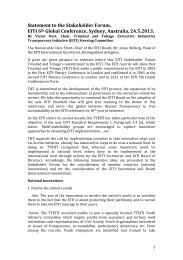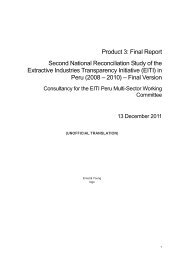CONTRACTS CONFIDENTIAL: - Good Law and Practice
CONTRACTS CONFIDENTIAL: - Good Law and Practice
CONTRACTS CONFIDENTIAL: - Good Law and Practice
Create successful ePaper yourself
Turn your PDF publications into a flip-book with our unique Google optimized e-Paper software.
CHAPTER THREE<br />
Commercially Sensitive<br />
Information <strong>and</strong> the<br />
Public Interest<br />
Perhaps the most widely made—<strong>and</strong> unchallenged—claim for confidentiality is that it protects<br />
commercially sensitive information. But this claim is only the beginning of an analysis, not the end. There<br />
is no technical definition of commercially sensitive information. Everything, from the existence of a<br />
contract, to illegal bribes, to most of what is disclosed under securities regulations, can be classified as<br />
“commercially sensitive” in the broadest sense of the term. However, disclosure of such information<br />
may still be required, in order to serve a greater public interest. In some cases it may be obvious; but<br />
in others, it may require tools to measure <strong>and</strong> balance the public interest in transparency against the<br />
private interest in confidentiality.<br />
The most important public interest at stake is the right to information, which enables democratic<br />
accountability. The public’s right to government-held information has been recognized by international<br />
human rights courts <strong>and</strong> implemented in national “sunshine” <strong>and</strong> freedom of information (FOI)<br />
laws. Additionally, the European <strong>and</strong> Inter-American Human Rights Courts have both recognized the<br />
right to information. In a case involving the disclosure of documents in a Chilean forestry investment,<br />
the Inter-American Court specifically recognized the “principle of maximum disclosure,” linking<br />
democratic accountability to expansive access to information, including the documents sought on the<br />
project. 41<br />
A. What Is Commercially Sensitive Information?<br />
There is no consensus definition of “commercially sensitive information.” The term is not in the<br />
authoritative legal dictionary, Black’s <strong>Law</strong> Dictionary, nor were we able to find a settled definition in<br />
other legal documents. It is generally understood to be any information that has economic value or<br />
could cause economic harm if known. 42<br />
What constitutes “commercially sensitive information” varies in different industries <strong>and</strong> in markets<br />
within those industries. It is often defined in reference to trade secrets, which do have a set<br />
definition:<br />
33


